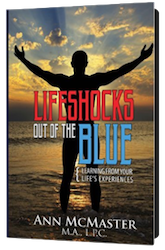In the Service of Life – Rachel Naomi Remen
This is an inspirational treatise that I wish I had written. I hope you find it as affirming and uplifting as I did. ann mc
In the Service of Life – Rachel Naomi Remen
In recent years the question ‘how can I help?’ has become meaningful to
many. But there is a deeper question we need to consider. It is not about
‘how can I help?’ but ‘how can I serve?’
Serving is different from helping. When you help you use
your own strength to help those of lesser strength. This is based on a kind of
inequality; it is not a relationship between equals.
People feel this inequality. When we help in this way,
we may inadvertently take away from people more than we could ever give them; we
may diminish their self esteem, their sense of worth, integrity and
wholeness. When I help, I am aware of my own strength. But we don’t serve with
our strength, we serve with ourselves.
When we serve, we draw from all of our experiences. Our
limitations serve, our wounds serve, even our darkness can serve. The wholeness
in us serves the wholeness in others and the wholeness in life. The wholeness in
you is the same as the wholeness in me. Service is a relationship between
equals.
Helping incurs debt. When you help someone they owe you
something. But serving, like healing, is mutual. There is no debt. I am as
served as the person I am serving. When I help, I may have a feeling of
satisfaction. When I serve I have a feeling of gratitude. These are very
different things.
Serving is also different from fixing. When I fix a
person I perceive them as ‘broken’ and their brokenness requires me to act. When
I ‘fix’, I do not see the wholeness in the other person or trust the integrity
of the life in them. When I serve I see and trust the wholeness. It is
what I am responding to and collaborating with.
There is distance between ourselves and whatever or
whomever we are fixing. Fixing is a form of judgment. All judgment creates
distance, a disconnection, an experience of difference. In fixing there is an
inequality of expertise that can easily become a moral distance. But we cannot
serve at a distance. We can only serve that to which we are profoundly
connected, that which we are willing to touch. This is Mother Theresa’s basic
message. We serve life not because it is broken but because it is
holy.
If helping is an experience of strength, fixing is an
experience of expertise. Service, on the other hand, is an experience of
mystery, surrender and awe. A fixer has the illusion of being causal. A server
knows that he or she is being used and has a willingness to be used in the
service of something greater, something essentially unknown.
Fixing and helping are very personal; they are very
particular, concrete, and specific. We fix and help many different things in our
lifetimes, but when we serve we are always serving the same thing. Everyone who
has ever served through the history of time serves the same thing. We are
servers of the wholeness and mystery of life.
The bottom line, of course, is that we can fix without
serving. And we can help without serving. And we can serve without fixing or
helping. I think I would go so far as to say that fixing and helping may often
be the work of the ego, and service the work of the soul. They may look similar
if you’re watching from the outside, but the inner experience is different. The
outcome is often different too.
Our service serves us as well as others. That which uses
us strengthens us. Over time, fixing and helping are draining, depleting. Over
time we burn out. Service is renewing. When we serve, our work itself will
sustain us.
Service rests on the basic premise that the nature of
life is sacred, that life is a holy mystery which has an unknown purpose. When
we serve, we know that we belong to life and to that purpose. Fundamentally,
helping, fixing, and service are ways of seeing life. When you help you see life
as weak, when you fix, you see life as broken.
When you serve, you see life as whole. From the
perspective of service, we are all connected. All suffering is like my suffering
and all joy is like my joy. The impulse to serve emerges naturally and
inevitably from this way of seeing.
Lastly, fixing and helping are the basis of curing, but
not of healing. In 40 years of chronic illness I have been helped by many people
and fixed by a great many others who did not recognize my wholeness. All that
fixing and helping left me wounded in some important and fundamental ways. Only
service heals.
Rachel Remen is Assistant Clinical
Professor of Family & Community Medicine at UCLA




